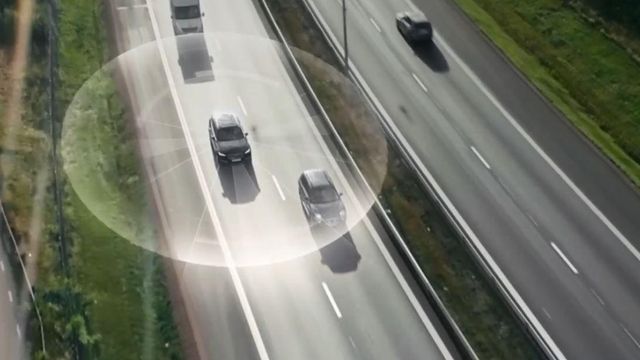Autonomous cars are here: NC State may speed technology forward
A project involving autonomous cars at NC State could move driverless cars closer to reality.
Posted — Updated"There are a lot of kinks that need to come out of the system," said Stephanie Harrell, who is a researcher for the UNC Highway Safety Research Center. "There are a lot of things that we need to deal with, but it's not so unimaginable. But it's not 'The Jetsons.'"
Harrell is talking about driverless cars.
The future is now?
The technology behind such vehicles is growing quickly and involves letting a robot do all of the driving.
The vehicles operate using a series of sensors, cameras and a GPS to get a person from point A to point B.
The National Highway Traffic Safety Administration has defined five different levels that need to be met for autonomous driving. The milestones range from "Level 1," which offers no assistance to the driver, to "Level 5," which takes complete control and can do anything a human can do behind the wheel.
"No one right now has an effective driverless car that can operate under all circumstances," said Duke University engineering professor Michael Clamann. "All the ones available right now work within a limited environment."
There are many projects around the country that are exploring the various levels of driverless technology.
The highest-profile project involves Uber cars in Pittsburgh, which have drivers available to take over if there is a problem. And Las Vegas last November put a completely autonomous shuttle bus in service, which includes making three stops along a very short route.
North Carolina State University is preparing to launch its "ecoPRT," also known as Economical Rapid Transportation, a two-seat pod capable of transporting students across its sprawling campus.
The "ecoPRT" was developed by Professor Seth Hollar and his students. It moves at a top speed of 10 mph and has the ability to find a charging station on its own.
"Over time, people will simply get used to it and assume this is a service that's provided to them and expect to have it," said Hollar, who plans to continue his work on autonomous technology once the "ecoPRT" project is fully functional.
His students are just as excited about the future of these kinds of vehicles.
William Joel Smith is a former N.C. State student who still returns to campus to work on the project.
"I know that the brain in the machine is a million times faster and smarter than my brain," he said.
Will autonomous cars make car crashes a thing of the past?
Safety is the first thing enthusiasts will raise when talking about the future of autonomous driving technology.
According to NHTSA, 40,000 people died in traffic accidents in 2016, and 90 percent of those collisions can be attributed to human error.
The hope is this technology will help to bring those numbers down.
Driverless cars could also help provide access to transportation to people with disabilities and the elderly. But not everyone is enthusiastic about this version of the future.
"There are some people who are very excited about it, but there are other people who wouldn't step foot into a vehicle like that," Hollar said. "The concept of giving up control was very very hard."
The study looked at four pillars and found the United States is No. 1 in technology, but it lags behind other countries in policy (No. 10), infrastructure (No. 4) and consumer acceptance (No. 7).
"Customer acceptance is a huge issue," said Clamann, who is currently doing research on how this technology interacts with pedestrians. "There are also policy barriers to it. We are trying to get several pieces of legislation passed at the federal level to make the cars legal."
There has been some recent legislative movement when it comes to policy to regulate this new technology.
A bill to speed the introduction of autonomous cars passed the North Carolina House in September but stalled in the Senate.
North Carolina is one of 21 states to have passed legislation about the use of autonomous cars. Gov. Roy Cooper signed House Bill 469 in December, which established regulations for fully autonomous vehicles and created a committee to discuss the growing questions.
Harrell, who frequently attends nationwide conferences to discuss driverless technology, said it's hard to keep up.
"It's just so fast moving, and it's absolutely fascinating," Harrell said. "There is a lot going on in this space."
Many experts say it's moving too fast.
"The idea is, if we can replace that human with a computer, you would reduce fatalities," said Clamann. "That is probably true over time, but driving is very complex, and trying to account for every driving scenario using computer algorithms is a difficult problem to fix, and it requires a lot of testing and a lot of troubleshooting, and that's going to require making a lot of mistakes."
N.C. Highway 540 in Raleigh is one of 10 designated test sites in the country for driverless cars. You can expect to see projects making their way to the Triangle as this technology advances but, according to Clamann, you shouldn't expect to be able to buy one of these cars anytime soon.
"I think we are a good 30 years out before we start seeing that level of technology, but we are going to see some really good advances on the way there," Clamann said.
Related Topics
• Credits
Copyright 2024 by Capitol Broadcasting Company. All rights reserved. This material may not be published, broadcast, rewritten or redistributed.






